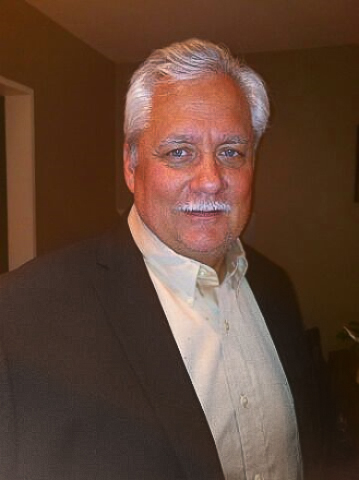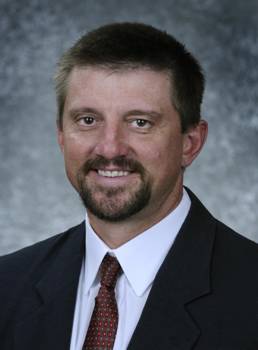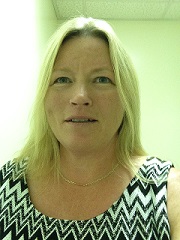Family Engagement Services In Community - March 10-13, Miami, FL, USA
Evidence Based & Strength Centered Approaches for Delivering Durable Family Engagement Services in Community
Dates: March 10-13, 2015
Where: Miami, Florida, USA
** Bring your team and take advantage of group rates
Family Group Decision Making, Teaming and Conferencing approaches work to strengthen families such that they themselves are positioned to find immediate solutions to needs, and provide long-term solutions for issues related to their safety, permanence and well-being.
Combined with Motivational Interviewing (MI) skills makes for a well rounded family engagement team that is strength centered.
Attend all 4 Days, or select 2-Day sessions. Your choice.
PROGRAM OUTLINE

The research shows that use of evidence based family engagement approaches provide enhanced collaboration, additional supports and assessment information thus, improved outcomes.
AT-A-GLANCE
Days 1 & 2 - March 10-11, 2015
Select One (1) Comprehensive 2-Day Workshop
Family Group Decision Making, Teaming and Conferencing
Imagine you have an entire team to assist you as you provide quality interventions to the individuals and families you serve. Also, consider what it would be like if you could decrease the level of resistance you experience as you provide quality interventions.
Becoming An Evidence Based Organization: Leadership for Capacity Building & Sustainability
Evidence-based programs, practices and policies are becoming key approaches required of organizations to sustain them and their initiatives. According to research, the benefits from implementing evidence-based approaches vary widely based on organizational characteristics.
Days 3 & 4 - March 12-13, 2015
Select One (1) Comprehensive 2-Day Workshop
Motivational Interviewing (MI): Core Skills for Durable Behavioral Change
Teams perform like the pros they are using Motivational Interviewing skills. MI is proven to be fully compatible with various approaches as a method that helps people resolve ambivalence toward change through discovery of intrapersonal fuel by placing complete responsibility for change on the individual. Its a must have method in your tool kit.
Becoming An Evidence Based Organization: Advance Skills for Planning and Implementation
This workshop is a follow up to the Core Skills workshops on “Becoming an Evidence-Based Organization (EBO)” designed to provide support for those participants and agencies that previously completed a one or two day EBO workshop and would like assistance with EBO planning and implementation.
PROGRAM DETAILS
Days 1 & 2 - March 10-11, 2015
FAMILY GROUP, TEAMING AND CONFERENCING
Family Group, Teaming and Conferencing approaches work to strengthen families such that they themselves are positioned to find immediate solutions to needs, and provide long-term solutions for issues related to their safety, permanence and well-being.
Imagine you have an entire team to assist you as you provide quality interventions to the individuals and families you serve. Also, consider what it would be like if you could decrease the level of resistance you experience as you provide quality intervention. That is what Family Group, Teaming and Conferencing bring to children and family services delivery. This strength centered approach has been used to effectively provide planning in all areas of social service interventions: Drug and Alcohol, Adult and Juvenile Probation, Child Welfare, Adult and Child Behavioral Health and Disabilities and Aging. It is used in all these disciplines because it works!
Integrating evidence-based and strength-centered policies, programs and practices must be a primary goal in all service delivery to maximize resources and their benefits for consumers. Challenging traditional practice methodologies, this workshop introduces participants to Family Group, Conferencing and Teaming as the preferred method for engaging and empowering families to plan how to resolve their concerns as well as those of the agency. The approaches provide the contextual framework for a service delivery approach that emphasizes family engagement and empowerment through the belief that families should be given the opportunity and responsibility to develop their own plans – based on the fundamental belief that no one knows a family’s situation and available resources better than families themselves. The approaches for engagement are evidence-based and strength-centered and account for children, their families, unique populations, foster care settings.
Learning Objectives
Participants will be in a position to gain an understanding of the workings of Family Group, Conferencing and Family Teaming and the stages of the process. Additionally, it will prepare them to begin planning for and working toward more successful implementation of the models. The content also delves into higher-level information associated with an FGDM meeting – primarily from the focus of the referral source.Learn skills that will assist you in reducing resistance from the individual's, families and communities that you serve.
Participants will be able to:
- Describe the Family Group, Conferencing, Teaming and Decision Making process;
- Understand how the process empowers individuals, families and communities to work towards positive change;
- Identify concepts, values and beliefs that are involved to drive the process;
- Understand how case management and care coordination fits;
- Understand the roles and activities of all the individuals involved in the process;
- Review the core steps necessary to implement or integrate theses approaches at their agency
BECOMING AN EVIDENCE BASED ORGANIZATION-1: LEADERSHIP IN CAPACITY BUILDING AND SUSTAINABILITY
Evidence-based programs, practices and policies are becoming key approaches required of organizations to sustain them and their initiatives. According to research, the benefits from implementing evidence-based approaches vary widely based on organizational characteristics. Overall, Evidence-based Organizations (EBO's) consistently demonstrate the ability to achieve desired outcomes through effective problem-solving and informed decision-making. In doing so, they use research evidence and data to drive decisions and to develop innovative approaches to delivering services. Their overall goal is to increase the likelihood of your agency and its clients achieving desired outcomes.
The upcoming workshop lays the foundation for realizing the greatest promise these approaches hold both for achieving enduring client outcomes and for consistently reaching, and exceeding expectations of stakeholders who support and fund them.
Workshop Curriculum
I. The case for evidence-based reform
a. Increasing accountability
b. Declining resources, increasing costs
c. Increasing offender populations; ongoing recidivism
d. Expanding technology
e. Expanding evidence-based knowledge
II. Knowledge and use of evidence-based “nuts and bolts”
a. Evidence-based policies, programs, and practices
b. Evidence-based principles
c. Evidence-based management
d. Evidence-based organizations
III. Demonstrating effective leadership
a. Qualities of effective leaders
b. Leadership versus management
c. Empowering staff
d. Leadership philosophy
IV. Understanding organizational culture and assessment
a. Organizational culture in practice
b. Characteristics of effective organizations
c. Staff of effective organizations
d. Organizational assessment: Why, how, and by whom?
V. Engaging in strategic planning and performance measurement
a. Ineffective and effective strategic planning
b. Linking organizational vision and mission to agency activities and outcomes
c. Using data for problem analysis and needs assessment
d. Accountability for results through performance measurement
e. Ensuring program fidelity and continuous quality improvement
f. From performance measurement to program evaluation
VI. Enhancing organizational capacity and sustainability
a. Building internal and external support
b. Use results early, often, and in multiple ways
c. Ongoing role of leadership and management
d. Adapt and reassess over time
e. Marketing your success
f. Strategic funding and grant writing
Days 3 & 4 - March 12-13, 2015
MOTIVATIONAL INTERVIEWING (MI): CORE SKILLS FOR DURABLE INTRINSIC BEHAVIORAL CHANGE
Enduring client change is achievable through Motivational Interviewing (MI). MI is the powerful evidence-based method for engaging intrinsic client motivation. Clinical trials on use of MI in all areas of treatment abound with substantial outcomes for creating sustainable change in maladaptive behaviors far beyond compliance.
MI is proven to be fully compatible with Cognitive Behavioral Therapy, Moral Reconation Therapy, Therapeutic Community, and various other approaches as a method that helps people resolve ambivalence toward change through discovery of intrapersonal motivation by placing complete responsibility for change on the individual.
With public and private agencies under increased scrutiny to deliver on promises through evidence based practices, executives must evaluate practices, techniques and programs to improve results and financial outcomes. Motivational Interviewing has applications in various settings giving staffs skills to help their clients succeed through appropriate evidence based practices.
Program Outline
This program teaches foundational concepts, strategy and techniques involved in MI and how it can be developed and utilized dynamically in targeted settings. It is excellent for staffs with little or no knowledge of the MI approach as well as those already implementing the model.
Joyfields Institute MI programs are taught through presentations, video examples, instructor modeling, and practice breakout activities.
Participants will recognize that many of the techniques are part of their current practice. With that recognition and the training, they will be able to begin using the techniques with more effectiveness and added fidelity to the model.
BECOMING AN EVIDENCE BASED ORGANIZATION-2: ADVANCE SKILLS FOR PLANNING AND IMPLEMENTATION
Having learned the framework for becoming and Evidence Based Organization (EBO), now lets move to the next stage and become it. Plan now to join us this winter in sunny Miami, Florida to establish your own framework for implementation.
This workshop is a follow up to the Core Skills workshops on “Becoming an Evidence-Based Organization (EBO)” designed to provide support for those participants and agencies that previously completed a one or two day EBO workshop and would like assistance with EBO planning and implementation.
It is also appropriate for agencies considering Certification as Evidence Based Organizations under the auspices of the Society for Evidence Based Professionals and Organization.
Agencies are encouraged to attend as teams of 4, 5 or more as this will help accelerate the agencies transition toward becoming a bona fide evidence based organization (EBO). Participants will be in a position to develop agency-specific strategic plans and action plans for becoming an evidence based organizations themselves (EBO).
Participants will be guided and will collaborate as a team to produce strategic and action plans that will focus on the five major components of EBO development:
Knowledge and use of evidence-based policies, programs, and practices
Demonstration of effective organizational leadership
Understanding of organizational culture and use of organizational assessment
Utilization of effective strategic planning, performance measurement, and program evaluation
Ongoing efforts to enhance organizational capacity and sustainability
Participants will use workshop time to develop their agency-specific strategic and action plans. It is recommended that 4 to 5 workshop participants attend from each attending agency. Prior knowledge of the five major components of EBOs is expected; participants should bring along previous EBO workshop materials and have at least one laptop computer available for group use.
Problem to be Resolved and Learning Objectives for Participants:
This workshop will address the common problems associated with moving from a training environment to the implementation and evaluation of evidence-based organizational change efforts.
Participants will be given the opportunity to develop strategic and action plans for EBO development, containing:
- An EBO vision and mission
- Organizational goals and objectives, centered on the 5 key aspects of EBO development
- Action steps to be taken to carry out the strategic plan. These action steps will specify responsible individuals, time frames, and resources needed.
- In completing the above, participants also will spend time considering:
- Intended target population(s)
- Program(s) being offered
- Logic and research support for existing program(s)
- Data being collected and outcomes being assessed
- Use of performance measurement and performance management
- Use of scientifically rigorous program evaluation
- Growing and sustaining an evidence-based environment
Daily Agenda
| 8:00 |
REGISTRATION, BREAKFAST & NETWORKING | |
| 8:30 |
WORKSHOP BEGINS | |
| 10:00 |
AM NETWORKING BREAK | |
|
10:15 |
WORKSHOP RESUMES | |
|
12:00 |
LUNCH | |
|
1:00 |
WORKSHOP RESUMES | |
|
2:30 |
PM NETWORKING BREAK | |
| 2:45 |
WORKSHOP RESUMES | |
|
4:30 |
WORKSHOP CONCLUDES DAILY (except last day at 3:30)
|
WHAT PEOPLE HAVE SAID
“When I was first asked to attend this training, I thought to myself, 'Not another training! Now am glad I came. It's the best training I have attended in a good while!”
FAMILES
"Because of our Family Team Conference my children were able to stay with family and I got the support I needed so someday I can take care of my kids again"
"We had a Family Group Decision Making Conference and Children's Services were no longer involved in our life - we were able to make a plan to keep the kids at home"
"Family Conferencing is just that, the family makes decisions because we know each other best"
PRACTITIONERS AND PROFESSIONALS
“The old way that we used to do business where we really intruded on people’s lives - laid out what we felt were the issues and demanded change - you don’t end up getting change by doing that. So I think this whole concept recognized that all families have some positives and some strengths and gives us an opportunity all around the table to recognize that - it’s really strength based.” Service Region Associate
“The community partnership approach with family team meetings works because the families are a part of the meeting. It’s their meeting. They feel that they’re making decisions and have control over their families. It empowers families.” Worker, Division of Family Services
"I came into this Family Group Decision Making workshop uninterested in the material. I did not believe in its efficacy for the population I cater to in juvenile justice. I walked away following the training converted. Indeed before I left the workshop, I amicably resolved a critical matter that was close to home - me". It happened in record time. Mind blowing!" Juvenile justice worker
"I see the course as very powerful in prevention strategies. Proactive use of FGDM in working with the youth and adults can only strengthen "family" relationships and prevent the eventual need for more serious intervention", Foster Care Intervention Team Leader
"We work with a population that is often challenging to serve. With the FGDM method, I can absolutely see a way through to help clients and their families resolve issues they face - without necessarily compromising the rule of law." Probation officer
"The workshop leader was a very informative and energetic instructor. She had a unique way of exploring family engagement topics and encouraging participants to embrace the material. By far one of the best trainer's I have encountered."
"I can see how we can use FGDM components to help drive staff roles as collaborative partners with our clients and their "families". It will also help hand responsibility over to the families for solving their own problems." Foster Care Intervention Team Leader
"The use of Family Engagement approaches as "Last or Second-chance" interventions can be practices as an effective "warning" resource to help families avoid further more serious action", Child Welfare Staffer
* Program content and Faculty subject to change without notice
WHO SHOULD ATTEND
The target audience is social service professionals and agencies who provide family focused services and are interested in learning more about, or becoming involved with, Family Groups, Conferencing and Teaming and those wishing to implement these models into their service array. It is particularly relevant to professionals responsible for children, youth, adult and family engagement services including;
- Children and Family Services
- Mental and Behavioral Health
- Case Management and Care Coordination
- Foster Care
- Juvenile Justice, Probation & Parole
- Providers in Alcohol and Drugs Treatment Programs
- Residential Facilities
- Prevention, especially Secondary and Tertiary
KEY REASONS YOU AND YOUR COLLEAGUES SHOULD ATTEND A JOYFIELDS INSTITUTE PROGRAM

- Join others and learn to quickly get your program initiatives on a solid foundation
- Learn in a focused setting without the distractions of being sold to
- Network with colleagues to share invaluable ideas and experiences from different parts
- Meet other professionals and learn how they overcame implementation challenges they faced
- Leave at the end of the program with action steps to begin addressing challenges you face
- Learn first hand the best and latest resources for addressing needs and how to apply them
- Learn from experts and outstanding practitioners “what works” and what not to do
- Through discussion groups and trouble shooting exercises you will learn to embrace opportunities ahead
CERTIFICATE & CONTINUING EDUCATION TRAINING HOURS
Joyfields Institute CE: Approved for CE hours. Upon completion of the course, participants will receive a certificate as evidence of your accomplishment and status as a practitioner who has acquired specific new skills. Many licensing/certification bodies accept this designation. Please check with your licensing body.
Social Workers: This program is Approved by the National Association of Social Workers, Approval #886636664-2159 for Social Work continuing education contact hours.
Licensed Alcohol & Drug Counselors: Approved for CE hours. Joyfields Institute is an approved education provider by National Association of Alcohol and Drug Abuse Counselors (NAADAC)/National Certification Commission (NCC) Provider #745. Many licensing/certification bodies accept this designation. Please check with your licensing body.
Substance Abuse Counselors: Approved for CE hours. Joyfields Institute is an approved education provider by National Association of Alcohol and Drug Abuse Counselors (NAADAC)/National Certification Commission (NCC) Provider #745. Many licensing/certification bodies accept this designation. Please check with your licensing body.
California LMFT, LEP, LCSW, LPCC: Joyfields Institute courses meet the qualifications for CE credits in CA as required by CA BBS. Joyfields Institute is
an approved education provider by CA BBS, license number PCE 5522.
For assistance, call +1(770)409-8780.
June E. Fisher, MSW, LSW, Certified Federal and Child and Family Service Review Evaluator
June E. Fisher is a nationally recognized trainer of trainers with over 20 years of experience providing training and education services to professionals, children, youth, families and their communities. Ms. Fisher provides dynamic interactive workshops for families, agencies and communities. Her knowledge and skills include working with human and social services teams and systems in the areas of intellectual disabilities, child welfare, trauma, mental health, and drug and alcohol.
Ms. Fisher is nationally recognized for her skills as a Certified Trainer and Curriculum Writer. In 2009 she was named “Trainer of the Year” by the Pennsylvania Child Welfare Training Program. She is also a Certified Federal and Child and Family Service Review (CFSR) Evaluator experienced with the mandated Federal outcomes and the program improvement plan (PIP) process. She has been a Court Appointed Special Advocate (CASA) in Cumberland County Pennsylvania since 2009.
Ms. Fisher works with the Pennsylvania Child Welfare Resource Center at the University of Pittsburgh and also serves as associate faculty member at Joyfields Institute for Professional Development. Ms. Fisher earned her Bachelors of Social Work degree from Temple University and her Masters in Social Work at Widener University.
Mark Lowis, LMSW, MCSW, MINT, EBP Implementation Specialist, President, MML Consulting

His experience includes case management, treatment, supervision, staff development, and management of adult and juvenile justice programs including a very specialized program for Parolee-Sex Offender Alcoholics and Addicts.
Mr. Lowis began his career as a Law Enforcement and Corrections Specialist in the United States Air Force. During his 10 years of service Mr. Lowis performed as a Law Enforcement Supervisor and later as a Master Instructor in the Air Force Police Academy. Following the Air Force he completed a Bachelors Degree in Psychology at the University of Michigan, and the Masters of Clinical Social Work at Michigan State University. He is a Licensed Master Social Worker (LMSW) and a member of the International Motivational Interviewing Network of Trainers (MINT), and carries advanced credentials in other evidence based practices.
In 33 years of practice Mr. Lowis has worked in various public and private human services programs and held positions ranging from clinical therapist, case-manager, director of operations for a national managed care company, director of utilization management, and contract negotiator. Currently Mr. Lowis holds a position with the Michigan Department of Community Health where he is responsible for the implementation and sustainability of evidence-based practices and best practice across the public health system.Mr. Lowis is also an adjunct professor at the Oakland University School of Medicine, the University of Michigan-School of Social Work, and the Wayne State University-School of Medicine-Department of Psychiatry-Research Division.
As a Joyfields Institute Associate Faculty Mr. Lowis leads the staff development and training activities, systems and process design improvements and leadership enhancement practice.
David L. Myers, PhD., Indiana University of Pennsylvania and Author, "Becoming An Evidence-based Organization (EBO)"
Dr. David L. Myers, PhD, first joined the faculty at Indiana University of Pennsylvania (IUP) in 1998. He earned his PhD in 1999 from the University of Maryland, Department of Criminology and Criminal Justice, and previously received a Master of Science in Administration of Justice and a Bachelor of Science in Criminal Justice from Shippensburg University.
Dr. Myers has taught more than 20 different courses at the undergraduate, masters, and doctoral levels, specializing in classes on research methods and quantitative analysis, juvenile justice and delinquency, and criminal justice policy, planning, and evaluation. From 1999 to 2002, he served as the criminology master’s program coordinator; from 2002 to 2008 he served as the criminology doctoral program coordinator; and he currently is serving as criminology internship coordinator. He has supervised the teaching and research of dozens of doctoral students and has advised a variety of student organizations and community groups.
Dr. Myers has published three books (most recently Becoming an Evidence-Based Organization: Demonstrating Leadership and Organizational Growth, Joyfields Institute for Professional Development, 2013) and over 30 journal articles, book chapters, or other scholarly works. He also has presented more than 50 papers at national and regional conferences and is currently the Editor of Criminal Justice Policy Review (a quarterly, peer-reviewed journal published by Sage Publications).
He has received several grants to support his research and previously served as the Director of the IUP Center for Research in Criminology.
Dr. Myers also has served as the Dean’s Associate in the IUP School of Graduate Studies and Research; the Interim Vice Provost for Research and Dean of Graduate Studies at IUP; the Interim Executive Director of the IUP Research Institute; and the Interim Director of the IUP Murtha Institute for Homeland Security. In the community, he has served as Chairperson of Indiana Area Communities That Care; President of the Board of Directors of Big Brothers Big Sisters of Indiana County; and Advisor to Kids on Campus of Big Brothers Big Sisters.
ACCOMMODATIONS, REGISTRATION FEE, INTERNATIONAL PARTICIPANTS
Our host hotel for the programs is the beautiful full service, all-suites Hilton Hotels property;
Embassy Suites Miami - International Airport
3974 NW South River Drive, Miami, Florida, 33142
Tel: +1-305-634-5000

This hotel property is conveniently located one-half mile from Miami International Airport and just minutes from Downtown Miami, the Miami Convention Center, world famous South Beach and many other Miami attractions. It offers a free roundtrip airport shuttle service as well as complimentary shuttle service to restaurants within a 2 mile radius. Your stay includes complimentary breakfast, high speed wireless internet access and a nightly manager's reception.
We have negotiated a Group Room Rate of $179 per night plus taxes and fees. This room block expires Feb. 9th.
How to reserve your room: Participants are responsible for making own accommodation arrangement. Please make your reservations by contacting the hotel directly (Details to follow soon).
- Telephone: Please Call the hotel directly at (800) 362-2779. Mention the Group Code "Joyfields" to take advantage of the negotiated rate.
- Online: Click here to make your reservations online, or copy over the following entire link onto your browser;
http://embassysuites.hilton.com/en/es/groups/personalized/M/MIASPES-JOY-20150306/index.jhtml?WT.mc_id=POG
* Ample discounted on premises hotel parking available if you plan on commuting or rent a car during your stay in the city.
If you need immediate assistance, please contact our office at +1(770)409-8780 or send email to [email protected].
REGISTRATION & FEES
The registration fee covers;
- All training sessions
- Comprehensive Program Manual
- Earn CE training hours allocated for this particular program
- Breakfast daily with refreshment breaks
- 10% member discount to Joyfields Institute sponsored programs
* Get and save additional 10% now.
| Individual | Team of 2 - 3 | Team of 4+ | ||||
| Attend 2-Day program (Choose workshop): | $695 ea. | $595 ea. | $495 ea. | |||
| Attend this Workshop (Register below): | $1295 ea. | $1195 ea. | $995 ea. |
Event Details
| Event Date | 03/10/2015 |
| Event End Date | 03/13/2015 |
| Individual Price | $1,295.00 |
Group Rate
| Number of Registrants | Rate/Person ($) |
|---|---|
| 2 | 1,195.00 |
| 4 | 995.00 |
